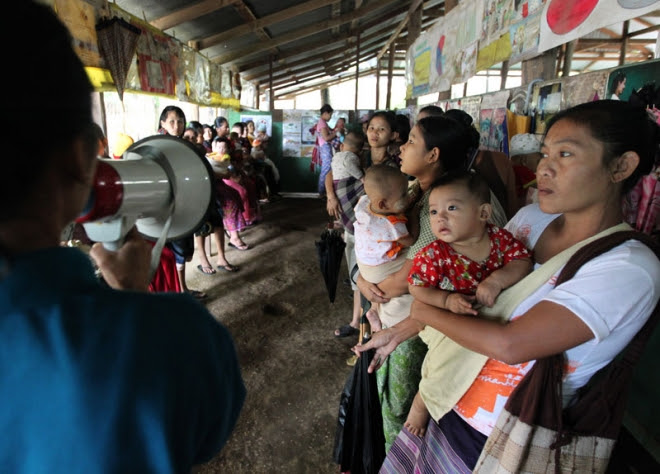Communities displaced by conflicts in Myanmar are waiting for a political dialogue process to kick in before making a move to return home.

This is the finding of The Border Consortium or TBC survey and report released this week.
As Myanmar’s government prepares to host the 25th ASEAN Summit in Nay Pyi Taw next week, conflict-affected communities are wondering if and how the peace process can get back on track. Negotiations for a nationwide ceasefire agreement are stumbling and national elections are due at the end of 2015. However, political dialogue to address ethnic conflict is essential to promote national reconciliation, according to the press release dated 6th November.
Eleven civil society organisations surveyed the perceptions of community leaders in 222 village tracts across southeast Myanmar about protection and security concerns.
The findings were released this week as part of The Border Consortium’s Annual General Meeting and Donors Forum. The consortium has been providing food, shelter and camp management support for refugees who have fled from armed conflict into Thailand for the past 30 years.
Despite positive media reports about ongoing reforms in Myanmar under President U Thein Sein, the report findings indicate a reluctance on the part of displaced people to return home due to militarisation of their home territory and lack of preparation for a homecoming.
The report documents changes in the patterns of abuse since the latest round of ceasefire negotiations began in late 2011. While there has been a reduction in fighting, there has been no respite from militarisation which is increasingly related to resource extraction and commercial development.
Sally Thompson, TBC’s executive director said they have only seen small scale and tentative return of refugees from Thailand, and the survey suggests that the overall number of internally displaced persons has not reduced significantly either.
“Efforts to prepare for the return and resettlement of displaced persons have been thwarted by ongoing militarisation and insecurity,” she said.
The withdrawal of Myanmar Army troops and establishment of ceasefire monitoring mechanisms are identified as local priorities for stopping violence and abuse. Community leaders also emphasised the importance of human rights and legal education for empowering villagers to claim their rights and strengthen access to justice, according to the report.
“Structural issues like security sector reform and land rights need to be addressed in an inclusive national dialogue. In addition, strengthening ethnic policing and judicial capacities could reinforce community protection strategies and help prevent the reoccurrence of crimes and abuse,” said Ms Thompson.



